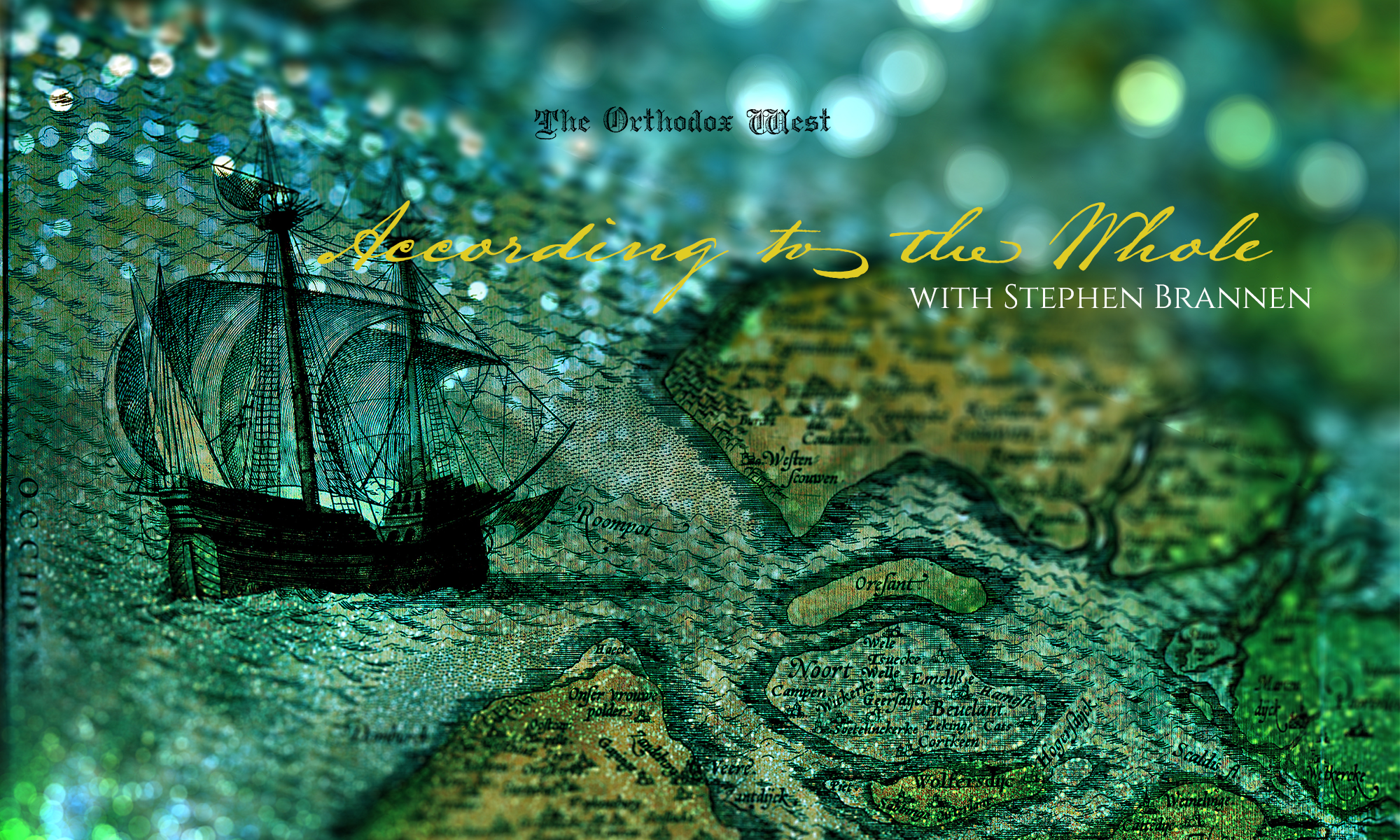
I’m not the biggest college football fan in the world, but I had the privilege of attending the Georgia vs. Georgia Tech game recently with my dad, uncle, and cousin with free tickets from a friend of the family. It’s only the second game I’ve ever been to in person, and the experience is definitely very immersive. And this game just happened to be a rivalry game in UGA’s 80,000 person stadium that was packed out. It was a lot to take in.
But something occurred just before the two teams ran out onto the field that gave me pause and made me experience the whole thing in a different frame of mind: on the giant screen a dramatic video of home team highlights played while an audio clip of the late Larry Munson, legendary Georgia football radio announcer, boomed through the stadium proclaiming boldly that, “There is no tradition more worthy of envy, no institution worthy of such loyalty, as the University of Georgia.”
As an Orthodox Christian for whom Orthodox Tradition and the institutional Church are paramount, I found myself not only opposed to this statement in terms of fandom as someone secretly rooting for the other team, but in religious, doctrinal terms as an Orthodox Christian. I don’t mean to make a mountain out of a molehill, but then I think that’s precisely what has already been done by the college. What may possibly have been a momentary rhapsody of hyperbolic oratory from a professional radio announcer has now been immortalized and enshrined as a formal liturgical proclamation, played religiously before every home game, to roaring cheers from the crowd.
And I use the terms ‘liturgical’ and ‘religiously’ on purpose. After hearing that clip, my frame of mind became liturgical. Here’s what I observed.
For at least a half mile in every direction from the stadium, crowds of people walked in procession past one tailgate after another, like stations on the Via UGA. Once in the stadium—an imposing structure purpose-built not just in a utilitarian fashion, but with aesthetic and liturgical considerations—the crowds, dressed in their liturgical colors, waited for the ceremonies to begin. The typical national anthem rite was performed, with standing, singing, and the placing of hands over hearts. Then the opening video was, as I mentioned, a litany of the acts of the saints of yesteryear, paired with a now scriptural proclamation from a great apostle of the faith, Larry Munson, in an almost creedal like fashion: Our traditions are the most enviable, our institution the most worthy of loyalty.
Then the two sides of the stadium engaged in an antiphonal chant of home team devotion–the north side chanting one part, the south chanting the other. As the parallel liturgy of the game itself commenced, with its own rubrics of coin tosses, ordered actions, vestments, holy time, etc., the laity continued to engage in their own liturgical actions in response to the game: special chants at kickoffs, the communal “amens” of cheers or boos, and of course the hymnology (UGA’s fight song is actually called the “Battle Hymn”). At the start of the fourth quarter there was a solemn tune played while the crowd silently stood and held up four fingers into the air. I’m sure there’s more I’m missing.
Clearly, we’re liturgical creatures. It’s in our bones to elevate actions and words and colors and locations into formalized, liturgical expressions of our emotions and intentions. We will always fortify our lives with these types of traditions, and that’s a good thing. I’m not saying that all the liturgical traditions in that stadium were wrong or bad (except for that quote). Indeed, if there are to be institutionalized sports at all, they will by nature always be imbued with liturgical traditions. But it occurred to me that this was probably the most liturgical—maybe the only liturgical—thing that people there would do all week. In the deeply Protestant American South, that Protestantism is often bereft of the most natural way humans have always approached and tried to encounter the divine, and the way Hebrews and then Christians have worshiped the true God for over 4,000 years: liturgy.
But it also occurred to me that this was not only the most liturgical thing many of the crowd would do that week, it may also perhaps be the most altogether religious—as the institution of this college team may offer more meaning, purpose, and identity for some people than anything else, and thus truly be receiving more devotion and worth-giving (worship). How common and widespread is this—the near total replacement of divinely oriented religion with mere sports? Or at least the phenomenon of sporting events supplying people the most overt liturgies they ever participate in?
We Orthodox have an evangelical imperative to demonstrate for a society desperate for true religion and meaningful liturgy our Liturgies of Divine Worship. Not only is our worship exclusively aimed at the One True God, but that worship is also in the fashion that both best meets our deepest human nature and is God-ordained. People are hungry for it. We have what they need.
